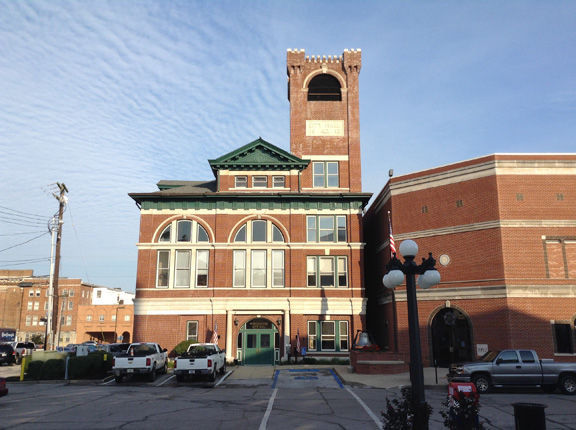Continued needle exchange approved by city
Published 1:01 pm Thursday, January 19, 2017
The Clark County Needle Exchange easily cleared one hurdle to continuing operations Tuesday night.
The Winchester Board of Commissioners approved with a 4-1 vote to allow the exchange to operate permanently. Commissioner Shannon Cox cast the dissenting vote.
Senate Bill 192, which passed in 2015 and is known as Kentucky’s heroin law, enables local health departments to operate substance abuse outreach programs that allow participants to exchange used hypodermic needles and syringes for clean ones. The bill requires approval from the legislative bodies of the city and county where the exchange program would operate, meaning the Clark County Fiscal Court will also have to give approval for the program to continue.
Clark County’s needle exchange program was approved by both entities in March 2016 contingent on a report after six months and re-approval of the program.
Scott Lockard, public health director at Clark County Health Department, presented the six-month data for the program to the commission at its regular meeting Tuesday night.
He said the program has a three-fold approach: to protect the community and first responders from the dangers of being accidentally stuck by a used needle, an opportunity to link injectable drug users to treatment and an attempt to combat a public health epidemic in Kentucky — the increase in cases of communicable diseases like hepatitis B, hepatitis C and HIV.
The Clark County Needle Exchange program is open from noon to 4 p.m. each Friday at the health department, located at 400 Professional Ave. Along with sterile needles, participants are be given a small sharps container to dispose of their needles and exchange at their next visit.
Lockard said the program has served 75 participants with a total of 233 visits since opening July 15, 2016. He said 3,996 needles have been collected and 5,442 needles have been dispensed, for a 1.36-to-1 ratio.
Most importantly, Lockard said four participants have been referred to treatment programs, 29 have been referred to the CCHD clinic for sexually transmitted disease, HIV and hepatitis C testing and two have been referred to family planning at the clinic.
Lockard said the program provides participants access to vaccinations, the overdose prevention drug naloxone, assistance enrolling in health care coverage, counseling and education, treatment and other services provided at the health department.
Participants are also referred to other agencies for assistance with food and housing.
Lockard was also able to present some demographic data to the commission.
“We sometimes have a certain idea of who a drug user is, but our data shows that perception is often wrong,” he said.
Lockard reported that 21 percent of participants are employed and 92 percent have health insurance, whether through Medicaid, Medicare, private or other sources.
Cox has been a vocal opponent to the needle exchange program since the initial legislation passed two years ago. He said personal experiences with drug-users sway his decision.
“I have a family member who told me the only reason they never used injectable drugs was because they couldn’t get a needle,” he said. “Now we’re just handing them out.”
Commissioners Rick Beach and Kitty Strode spoke in favor of renewing the program.
Strode cited conversations with Clark County Sheriff Berl Perdue and Winchester Police Capt. James Hall, who both supported the program to protect officers while searching properties and patting down suspects.
Beach said he supports the program as a way to reduce risk to city employees who might be stuck on the job, whether as law enforcement, emergency responders or even maintenance crews.
The order passed with a provision that Lockard would give annual updates before the commission and monthly updates via email.
In other business, the commission:
— approved the sale of city-owned property at 31 E. Broadway St. to Pillar of the Community, LLC for $23,000.
— heard a report of the audit of the City of Winchester’s financial statements from the 2016 fiscal year from Tom Sparks of Summers, McCrary and Sparks. Sparks reported the audit presented fairly. In 2016, the city had about $23.8 million in assets, an increase of $883,185 from 2015. The city had about $22 million in liabilities. The audit also included a review of Winchester Municipal Utilities, which is owned by the city.
— amended an order to accept portions of Croxton Way and Hospital Drive into the city street system for maintenance and repair.
— authorized the purchase of a self-contained breathing apparatus for Winchester Fire-EMS.
— accepted the resignations of Dakota Berry and James Griffiths as patient transfer specialists from Winchester Fire-EMS and the retirement of Douglas Hopper from Winchester Public Works after 40 years.








